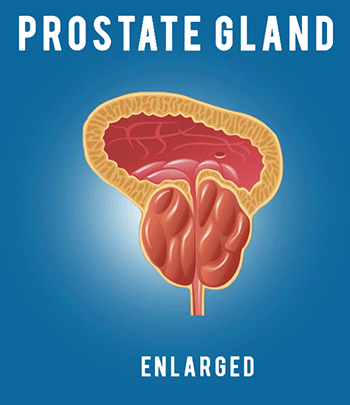Can Keto Help Boost Testosterone?
– Testosterone and the ketogenic dietare a lot more closely relatedthan people seem to think. See it all comes down to thegood old foundation of cholesterol. And whether you like it or not,cholesterol is actually good for us. I’m Thomas DeLauer with Keto Mojoand we’re going to breakdown how the keto dietcan actually help boostyour testosterone levels. You see the first thingwe have to look at,again, is cholesterol. Cholesterol is what isknown as a steroid hormone. Now the word steroidautomatically gets a bad rap,but in reality, a steroid hormoneis a perfectly healthything within the human body. So cholesterol is a steroid hormone,and testosterone is a steroid hormone,and they’re called steroid hormonesbecause they have a common theme. And that is the steroid ringwhich actually makes up themolecular structure of these hormones. Now we don’t need to go intothe molecular breakdown,the molecular structure and all that. We’re going to save that for another day. We want to talk about the ketogenic dietand how it boosts testosterone levels. So first we have to look athow cholesterol becomes testosterone. You see, cholesterol gets convertedinto something known as pregnenolone. Pregnenolone is sort of a master hormonethat can be broken downinto various other hormones. It can be broken down into estrogen,it can be broken down into testosterone. It all depends on the circumstance. And it’s done so by an enzymeknown as Cytochrome P450. The Cytochrome P450 breaksdown a lot of things. In fact it’s even involvedin alcohol metabolism. But it has a big rolewhen it comes down totaking the root core ofcholesterol and breaking it downand turning it into somethingthat’s usable by the body,generally, hormones. Now when we look at the ketogenic diet,75%, or roughly thereof,is going to be fatswhen we look at our diet. So we have to rememberthat when we’re supportingour healthy cholesterollevels through the diet,we’re potentially givingourselves more of a foundationto build testosterone off of. So this is all a very positive thing. Cholesterol also plays a rolein what are called lipid rafts. Now these lipid rafts are what essentiallycarry different proteinsand different fats. And these lipid rafts assemble componentsfor things like mTOR and IGF. Now what that means is it’sgoing to help someone build muscle,which has a directcorrelation with testosterone. So when we have mTOR, which stands formammalian target of rapamycin,we essentially have the anabolic switch. When mTOR is turned on andmTOR signaling can workbecause we have the healthy cholesterol,the testosterone within the human bodycan actually do the work. It can actually build muscle. It can actually do things. This also plays a big role with IGF. IFG is another thing, althoughunrelated to testosterone,it is related to overall muscle building. And the more muscle that we have,generally we start havingmore testosterone as well. So there is sort of a feedbacksystem that happens there. Now let’s go ahead and look at a studythat found the ketogenic diethad a powerful effecton not only cholesterol,but on testosterone, too. So this study was published inthe Journal of Strengthand Conditioning Research. It was an 11 week study that took a lookat people that were doingthe traditional western diet,versus a very low carb ketogenic diet. Well what they foundat the end of 11 weekswas that they did have an increasein total cholesterol levels. At first glance, people are likewow, we don’t want this increase,even though it was a subtle increase,it still goes against the grainof what we are normally hearing is good. But they also found that there is a118 nanogram per deciliterincrease in testosterone. Now to give you an ideaof reference range,the general positive referencerange for testosterone levelsis going to be anywhere from like300 to 900 nanograms per deciliter. So when you see a 118 nanogramper deciliter increasein 11 weeks, that is a huge increase. That’s enough to takesomeone that is consideredlow testosterone intosignificantly higher testosteroneand within normal range. That is very powerful. Now they also saw thatthere was a decreasein overall insulin levels. So there could be a correlation there. You see, the way that wecan go down that rabbit holeis to start looking at howinsulin plays a role inleydig cell function. You see we have leydig cellsthat come out of the testes. These leydig cells actuallypromote testosterone. They create testosterone. They are the epicenterfor lack of a better way of saying it. Well, it’s been shownthat insulin resistancebecause if we’re being exposedto so much insulin thatwe become resistant,can actually end up impeding the abilityto produce leydig cells. So what that means is thatthe brain is still ableto send the signal to say“Hey, create testosterone,”but then the leydig cellsnever have the opportunity to. So in essence, the ketogenic dietaffects testosterone in two ways. It affects it directly with thefoundational fuel that itneeds, the cholesterols,but then it also stops somethingthat would normally standin the way of the process. Now this is just the tip of the iceberg. We’re just seeing thatit’s positive results. We have to dive more into the researchand we have to wait for moreconcrete evidence to come outas to exactly why this is occurring. But all we know, is if we give our bodythe foundation that it needs,then it can make what it needsfor a successful, happy life. As always, keep it lockedin here with Keto Mojoand make sure if you’re testing,that you’re leaving the guesswork out of the equationand leaving your measuring to the meter. I’ll see you in the next Keto Mojo video.


